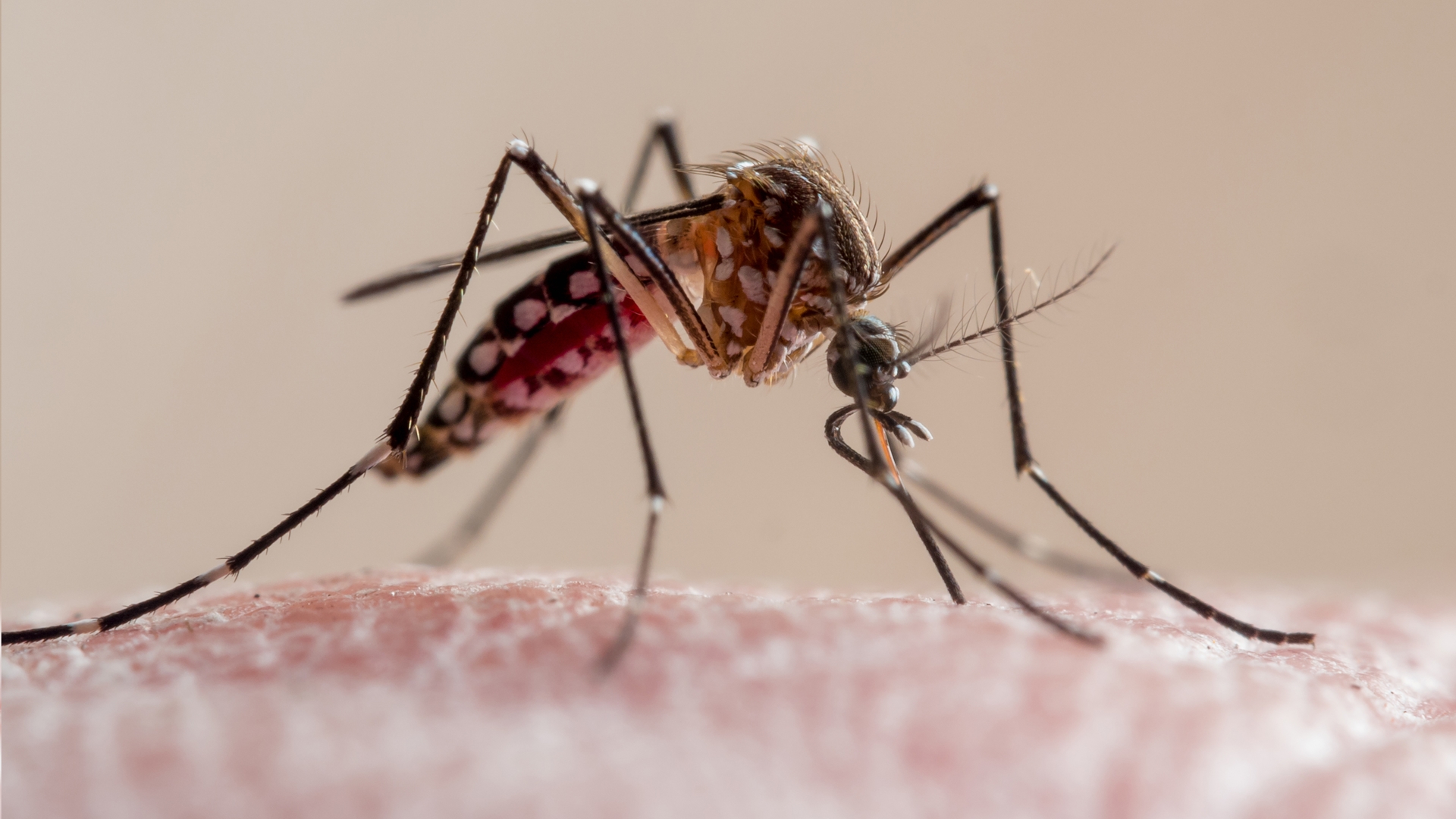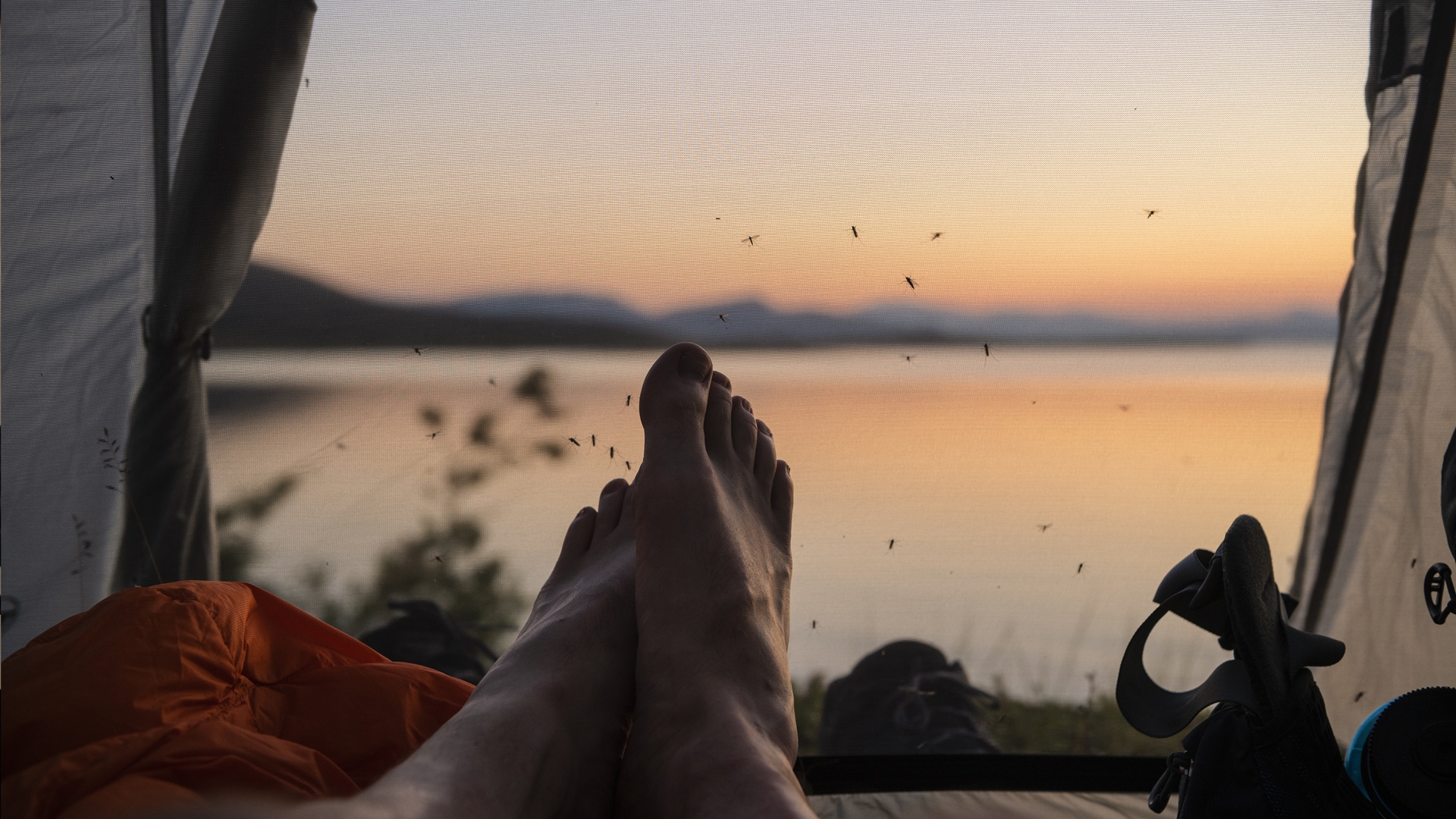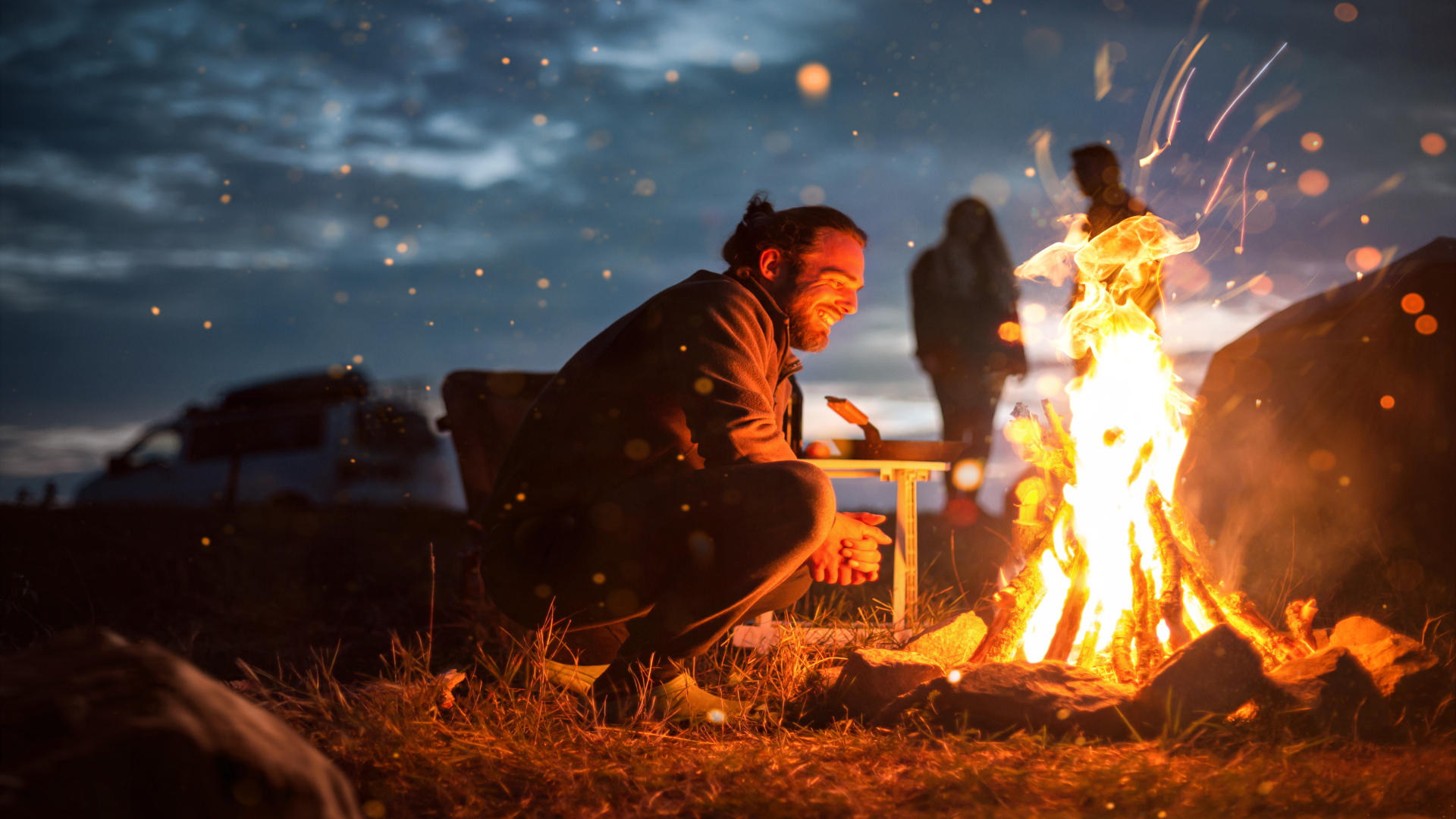How to avoid mosquito bites: keep biting bugs at bay
From repellents to clothing, our best practices for how to avoid mosquito bites will keep you comfortable at camp

All the latest inspiration, tips and guides to help you plan your next Advnture!
You are now subscribed
Your newsletter sign-up was successful
From the annoying whine of an incoming mosquito to the maddening itchy welts they leave you with, knowing how to avoid mosquito bites is up there with knowing how to pitch a tent when it comes to spending time outdoors.
Mosquitos tend to live in areas of thick vegetation and they love moist conditions and standing water. Their season begins in the spring and ends in the autumn, peaking in the summer. Female mosquitoes feed on human blood by piercing your skin using a long mouthpart during which time they inject their saliva into your bloodstream. Most of us are allergic to their saliva which is why we soon end up with very itchy welts which can make for a very uncomfortable time in the wild.
Most mosquito bites are nothing more than an uncomfortable nuisance, though they can become infected which can lead to other complications. In some areas though, mosquitoes can carry and transmit diseases like malaria, West Nile virus, dengue fever, yellow fever, and several other viruses that pose a serious health risk.

Scientists are still trying to find out why some of us seem to be more tempting to mosquitoes than others, but we do know that they’re attracted by carbon dioxide – since you can’t very well hold your breath every time you venture outdoors, we’ve taken a look at how to avoid mosquito bites to help keep you more comfortable at camp. Before you head out, you can use this super handy mosquito prediction tool created by Off! Just enter your zip code and see the mosquito forecast for the next seven days.
Use insect repellent
It may sound obvious, but your best first line of defense is to make sure you carry and use insect repellent. As we explained in our article on the best insect repellents, they block the receptors that mosquitoes use to sense carbon dioxide, and also smell bad to biting bugs, which keeps them at bay. Though you may prefer a natural repellent, ones using the chemical Diethyltoluamide (DEET) are considered the most effective repellent available. If you’re using DEET, 30% is commonly considered the ideal concentration.
Steer clear of standing water
As we mentioned before, mosquitos love to hang out by standing water. They need moist environments for their eggs to hatch into larvae so beware of pitching your tent near marshy wetlands and lakes.
Get the fire going
The smoke from your campfire is a natural mosquito repellent, so if you’re in mosquito territory, you’ll want to get that fire going as quickly as possible and hang out next to it during peak mosquito hours.
All the latest inspiration, tips and guides to help you plan your next Advnture!

Avoid peak mosquito hours
Different types of mosquitoes are most active at different times of day, but some good general times to avoid being outside are dawn and dusk, with the middle of the day being the safest time to venture outdoors unprotected. Now if you’re camping, you can’t hide out in your tent all day but you can wait until after dawn to emerge, and make sure your fire is crackling away by dusk.
Cover up
Mosquito season is at its peak during the summer months when you’re most likely to want to dress in shorts and T-shirts, but one of the easiest ways to keep mosquitoes off your skin is to cover it up. It’s worth investing in some light summertime long sleeves and breathable year-round hiking pants to keep as much skin covered up as possible.
Wear light-colored clothing
Mosquitoes seem to be more attracted to dark colors and bright colors, such as black, navy and red. Wearing light colored clothing won’t repel mosquitos, but it might make you less of a target.
Julia Clarke is a staff writer for Advnture.com and the author of the book Restorative Yoga for Beginners. She loves to explore mountains on foot, bike, skis and belay and then recover on the the yoga mat. Julia graduated with a degree in journalism in 2004 and spent eight years working as a radio presenter in Kansas City, Vermont, Boston and New York City before discovering the joys of the Rocky Mountains. She then detoured west to Colorado and enjoyed 11 years teaching yoga in Vail before returning to her hometown of Glasgow, Scotland in 2020 to focus on family and writing.

